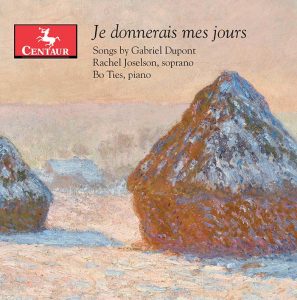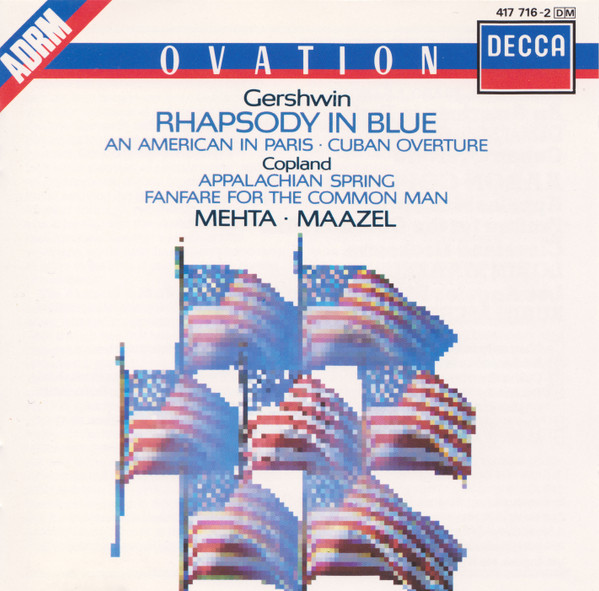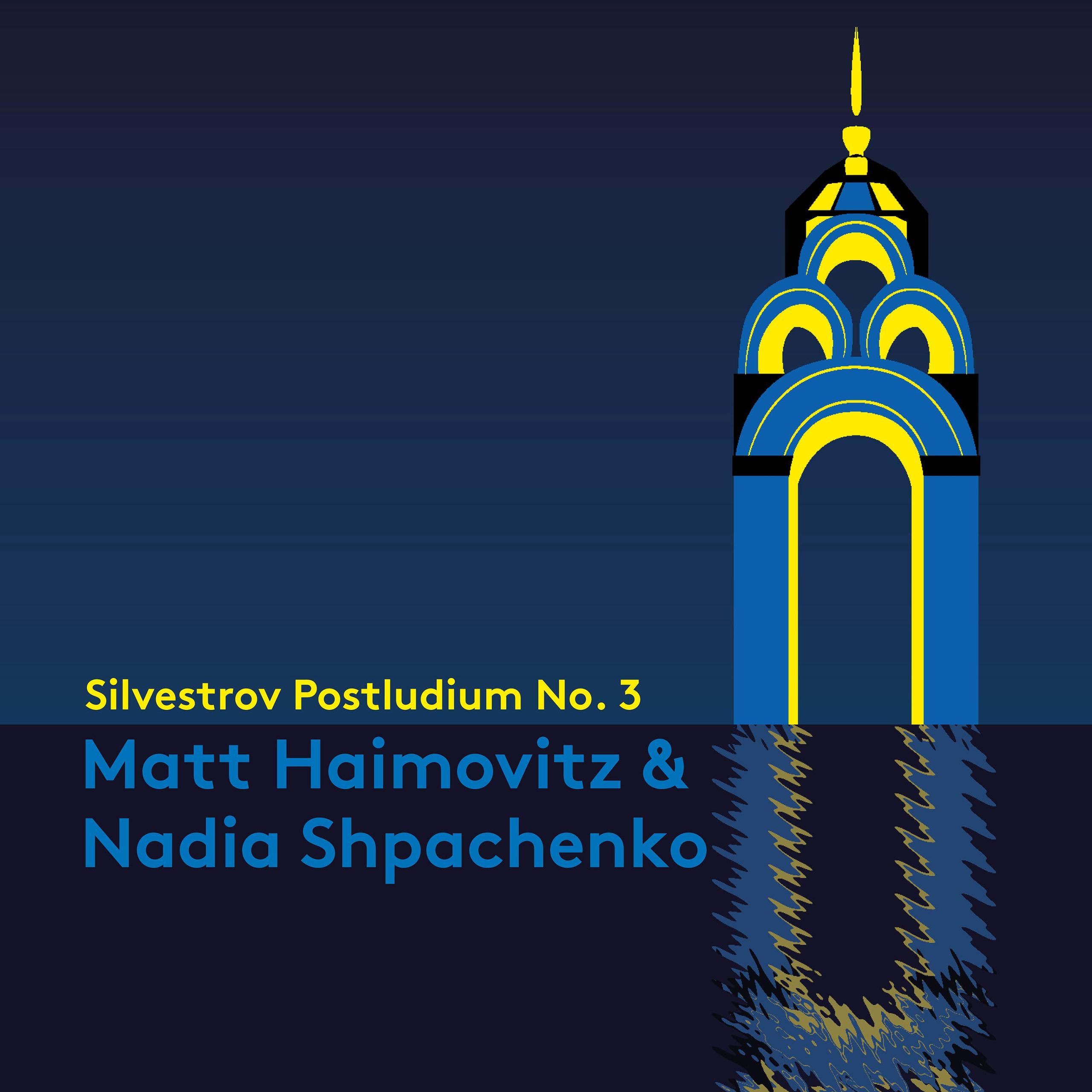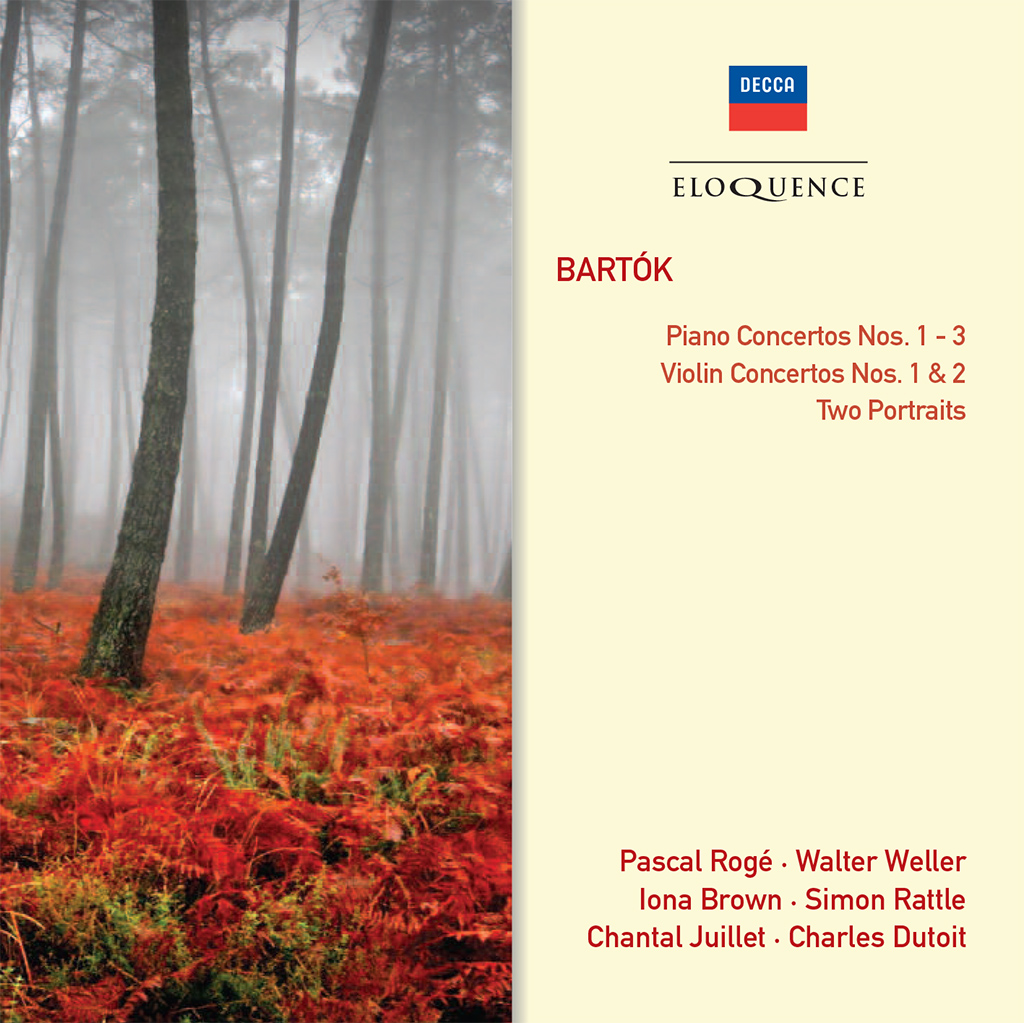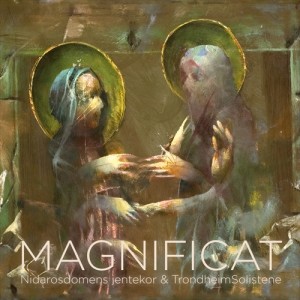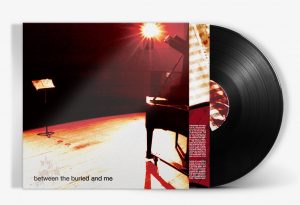Je donnerais mes jours. Songs by Gabriel Dupont. Rachel Joselson, soprano; Bo Ties, piano. Centaur CRC 3811. TT: 76.58. Downloads: amazon.co.uk (mp3); amazon.de (mp3); qobuz.com (16-bit)
Poèmes d'automne. Le chanson de Myrrha. Le Foyer. Mandoline. Les Effarés. Deux mélodies. La Pluie. Chanson d'automne. Annie. Journée d'hiver. Le Jardin mouillé. En aimant. Les Caresses sur des poèmes de Jean Richepin. Deux poèmes d'Alfred de Musset. Deux mélodies (1908). Chanson des "six petites oiseaux."
Gabriel Dupont (1878-1914), born in Normandy, received his musical training at the Paris Conservatory, first in organ, then in composition with Charles-Marie Widor. His songs should appeal to listeners who enjoy Fauré. The harmonic idiom is similar, with its strings of unstable chords sidling through stepwise progressions, almost like a kinder, gentler Wagner. Occasionally, Dupont ventures further afield: a hint of Debussyan whole tones in "Le Baiser" and "Le Silence d'eau;" stark, granitic dissonances that set the bleak stage for "Journée d'hiver."
Dupont's conceptions are imaginative, especially next to other settings of the poems: the rolling 6/8 swing of his Mandoline is markedly different from the better-known, "plucking" Fauré version. The opening invocation of "La Chanson de Myrrha" reminded me of Lakmé's "Bell Song," though in a much more reasonable register. The settings are remarkably smooth, not just in the standard French way of eliminating strong accents, but in projecting the sense of the text "across" the strophes, which you don't always hear as distinct entities. Dupont concludes quite a few of these songs by repeating the first verse, with the same or similar music; at first, this rounds matters off nicely, but eventually becomes an irritating tic.
Rachel Joselson, who teaches at the University of Iowa, lavishes a warm, inviting, even luscious tone on this beautiful music. Some of her French vowels "cover" more than I'd prefer—making the printed texts helpful—but she inflects the language naturally, timing and articulating the syllables with rhythmic point, phrasing, as the composer does, "over the barlines." And she brings an easy, full-bodied narrative manner to the stories without sacrificing beautiful tone.
The soprano offers thoughtful, well-considered interpretations as well, bringing a lovely flow and poise to "La Chanson de Myrrha," for example. She and her accompanist, Bo Ties—whose surname, the booklet takes pains to note, is pronounced "TEEZ"—evoke mystery, a sense of arcana, in Le temps de la mort des marjolaines. Joselson handles the sometimes tricky musical scansions with assurance, and finds the midrange tessitura of the "Deux poèmes" particularly congenial. On the other hand, the quiet upward leaps at phrase-endings—another regular Dupont device—don't sound entirely comfortable, and the nasal vowel in the Chanson (from the Musset poèmes) veers dangerously close to parody.
Ties realizes the accompaniments with an unobtrusive dexterity. The arpeggiated patterns of Ophélia have a lovely sparkle; Annie is sprightly; and the occasional whole-tone "hand runs," as I think of them, shimmer. His tone rings out nicely as he moves into the third strophe of Mandoline. The postlude of "O triste," triste precisely balances its poignant lyricism and its stoic spareness.
Note that, although the actual CD is available from Amazon more or less worldwide, the digital downloads only appear on the company's British and German sites.
stevedisque.wordpress.com/blog




